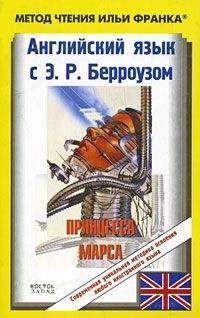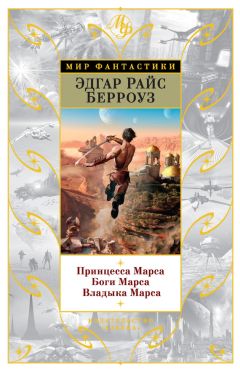The fellow, instead of approaching (этот тип, вместо того, чтобы приблизиться; fellow — человек; тип), merely stood and stared (просто стоял и смотрел; to stare — пристально смотреть); his eyes bulging and his jaw dropped (его глаза /были/ вытаращены, а челюсть отвисла; to bulge — выпячиваться, выпирать;to drop — падать; выпадать). And then another savage face appeared (а затем появилась еще одна дикая физиономия), and a third and fourth and fifth (и третья, и четвертая, и пятая), craning their necks over the shoulders of their fellows (вытягивающие шеи из-за плеч своих товарищей; to crane — вытягивать шею; crane — журавль, цапля) whom they could not pass upon the narrow ledge (которых они не могли обойти на узком выступе). Each face was the picture of awe and fear (каждое лицо было олицетворением благоговейного страха и ужаса; picture — картина; воплощение, олицетворение), but for what reason I did not know (но по какой причине — я не знал), nor did I learn until ten years later (и я узнал об этом только десять лет спустя). That there were still other braves (то, что там были и другие воины) behind those who regarded me (позади тех, кто рассматривал меня) was apparent from the fact (было очевидно по тому обстоятельству) that the leaders passed back whispered word to those behind them (что вожди передавали /какие-то/ слова шепотом тем, кто /стоял/ позади них; to whisper — шептать).
jaw [GL], leader ['lJdq], whisper ['wIspq]
The fellow, instead of approaching, merely stood and stared; his eyes bulging and his jaw dropped. And then another savage face appeared, and a third and fourth and fifth, craning their necks over the shoulders of their fellows whom they could not pass upon the narrow ledge. Each face was the picture of awe and fear, but for what reason I did not know, nor did I learn until ten years later. That there were still other braves behind those who regarded me was apparent from the fact that the leaders passed back whispered word to those behind them.
Suddenly a low but distinct moaning sound (внезапно тихий, но отдаленный стон «звук стенания») issued from the recesses of the cave behind me (раздался из глубин пещеры позади меня; to issue — выпускать; исходить; recess — углубление) and, as it reached the ears of the Indians (и когда он достиг ушей индейцев), they turned and fled in terror, panic-stricken (они повернулись и побежали в ужасе, охваченные паникой; to strike — ударять; поражать; to flee — спасаться бегством). So frantic were their efforts to escape from the unseen thing behind me (настолько сильно было их стремление спастись от невидимой опасности: «вещи» позади меня; frantic — неистовый) that one of the braves was hurled headlong from the cliff to the rocks below (что один из воинов был сброшен вниз головой с утеса на скалы внизу; to hurl — бросать с силой; headlong — головой вперед). Their wild cries echoed in the canyon for a short time (их дикие крики повторялись эхом из каньона недолгое время), and then all was still once more (а затем все снова стихло: «стало тихим»).
moaning ['mounIN], unseen ["An'si: n], headlong ['hedlON]
Suddenly a low but distinct moaning sound issued from the recesses of the cave behind me, and, as it reached the ears of the Indians, they turned and fled in terror, panic-stricken. So frantic were their efforts to escape from the unseen thing behind me that one of the braves was hurled headlong from the cliff to the rocks below. Their wild cries echoed in the canyon for a short time, and then all was still once more.
The sound which had frightened them was not repeated (звук, который испугал их, больше не повторялся), but it had been sufficient as it was (но и этого было достаточно; sufficient — достаточный) to start me speculating on the possible horror (чтобы я начал задумываться о вероятном кошмаре; to speculate — размышлять) which lurked in the shadows at my back (который скрывался в тени у меня за спиной; to lurk — скрываться). Fear is a relative term (страх — относительное понятие) and so I can only measure my feelings at that time (и поэтому я могу сравнить мои ощущения в это время; to measure — измерять; сравнивать) by what I had experienced in previous positions of danger (с теми, которые я испытывал в других опасных положениях) and by those that I have passed through since (и тех, через которые я прошел с тех пор); but I can say without shame (но я могу сказать без стыда) that if the sensations I endured during the next few minutes were fear (что если ощущения, которые я испытал в течение нескольких следующих минут, были страхом; to endure — вынести, вытерпеть), then may God help the coward (да поможет Господь трусу), for cowardice is of a surety its own punishment (так как трусость, несомненно, сама по себе наказание; of a surety — несомненно; surety — гарантия, залог).
frighten [fraItn], sufficient [sq'fISnt], cowardice ['kauqdIs], endure [In'djuq]
The sound which had frightened them was not repeated, but it had been sufficient as it was to start me speculating on the possible horror which lurked in the shadows at my back. Fear is a relative term and so I can only measure my feelings at that time by what I had experienced in previous positions of danger and by those that I have passed through since; but I can say without shame that if the sensations I endured during the next few minutes were fear, then may God help the coward, for cowardice is of a surety its own punishment.
To be held paralyzed (быть парализованным), with one's back toward some horrible and unknown danger (спиной к некоей ужасной и неизвестной опасности) from the very sound of which the ferocious Apache warriors turn in wild stampede (от одного звука которой свирепые воины-апачи обратились в паническое бегство; stampede — паническое бегство), as a flock of sheep would madly flee from a pack of wolves (подобно тому, как отара овец бешено помчалась бы от стаи волков; flock — стадо, отара), seems to me the last word in fearsome predicaments for a man (кажется мне кульминацией: «последним словом» ужасных ситуаций для /любого/ человека; predicament — затруднительное положение) who had ever been used to fighting for his life (который привык постоянно сражаться за свою жизнь) with all the energy of a powerful physique (со всей энергий сильного тела; physique — телосложение).
ferocious [fq'rouSqs], predicament [prI'dIkqmqnt], physique [fI'zJk], stampede [stxm'pJd]
To be held paralyzed, with one's back toward some horrible and unknown danger from the very sound of which the ferocious Apache warriors turn in wild stampede, as a flock of sheep would madly flee from a pack of wolves, seems to me the last word in fearsome predicaments for a man who had ever been used to fighting for his life with all the energy of a powerful physique.
Several times I thought I heard faint sounds behind me (несколько раз мне казалось, /что /я слышу позади себя слабые звуки) as of somebody moving cautiously (как будто кто-то осторожно двигался), but eventually even these ceased (но в конце концов даже они прекратились; eventually — в итоге), and I was left to the contemplation of my position without interruption (и я был предоставлен размышлениям о моем положении без помех; interruption — вмешательство, вторжение; to interrupt — прерывать). I could but vaguely conjecture the cause of my paralysis (я мог лишь смутно догадываться о причине моего паралича; vague — неопределенный, смутный; to conjecture — предполагать, строить догадки), and my only hope lay in that it might pass off as suddenly as it had fallen upon me (и моя единственная надежда заключалась в том, что он мог пройти так же внезапно, как и напал на меня; to lie — лежать; заключаться; fall upon — распространяться, падать).
contemplation ["kOntqm'pleISn], interruption ["Intq'rApSn], eventually [I'ventjuqlI], conjecture [kqn'dZektSq]
Several times I thought I heard faint sounds behind me as of somebody moving cautiously, but eventually even these ceased, and I was left to the contemplation of my position without interruption. I could but vaguely conjecture the cause of my paralysis, and my only hope lay in that it might pass off as suddenly as it had fallen upon me.
Late in the afternoon my horse (к концу дня мой конь), which had been standing with dragging rein before the cave (который стоял с волочащимися поводьями перед пещерой; to drag — тащить, волочить), started slowly down the trail (начал медленно /спускаться/ по тропинке), evidently in search of food and water (очевидно, в поисках пищи и воды), and I was left alone with my mysterious unknown companion (и я остался: «был оставлен» один с моим загадочным неизвестным соседом; companion — компаньон; случайный сосед) and the dead body of my friend (и мертвым телом моего друга), which lay just within my range of vision upon the ledge (которое лежало как раз в пределах моего поля зрения на выступе; range — диапазон, пределы; range of vision — поле зрения) where I had placed it in the early morning (там, где я положил его на рассвете).
mysterious [mIs'tIqrIqs], companion [kqm'pxnjqn], ledge [ledZ]
Late in the afternoon my horse, which had been standing with dragging rein before the cave, started slowly down the trail, evidently in search of food and water, and I was left alone with my mysterious unknown companion and the dead body of my friend, which lay just within my range of vision upon the ledge where I had placed it in the early morning.
From then until possibly midnight all was silence (с этого /времени/ и, возможно, до полуночи, все было тихо), the silence of the dead (тишина смерти; dead — мертвый, связанный со смертью); then, suddenly, the awful moan of the morning broke upon my startled ears (затем внезапно ужасный стон, как утром, достиг моего встревоженного слуха; to startle — испугать, встревожить), and there came again from the black shadows the sound of a moving thing (и вновь из черных теней донесся звук движущегося существа), and a faint rustling as of dead leaves (и слабое шуршание сухих листьев; to rustle — шелестеть, шуршать). The shock to my already overstrained nervous system was terrible in the extreme (это потрясение для моих уже перенапряженных нервов стало в высшей степени ужасным; to overstrain — переутомлять, перенапрягать; to strain — напрягать), and with a superhuman effort (и с нечеловеческим усилием) I strove to break my awful bonds (я попытался разорвать свои ужасные оковы; to strive — стараться, прилагать усилия; bonds — узы, оковы). It was an effort of the mind, of the will, of the nerves; not muscular (это было усилие разума, воли, нервов, но не мускулов: «не мускульное»; nerve — нерв; мускул, сухожилие: to strain every nerve — напрягать все силы; приложить все усилия), for I could not move even so much as my little finger (так как я не мог пошевелить даже мизинцем; little finger — мизинец), but none the less mighty for all that (но от этого /усилие/ не /было/ менее громадным: «тем не менее, усилие было громадным»). And then something gave (а затем что-то подалось), there was a momentary feeling of nausea (было мгновенное чувство тошноты), a sharp click as of the snapping of a steel wire (резкий щелчок как от рвущейся стальной проволоки; to snap — щелкать, лязгать, хлопать; /резко/ ломаться, рваться), and I stood with my back against the wall of the cave facing my unknown foe (и я стоял, прислонившись спиной к стене пещеры, лицом к лицу с моим неизвестным врагом).



